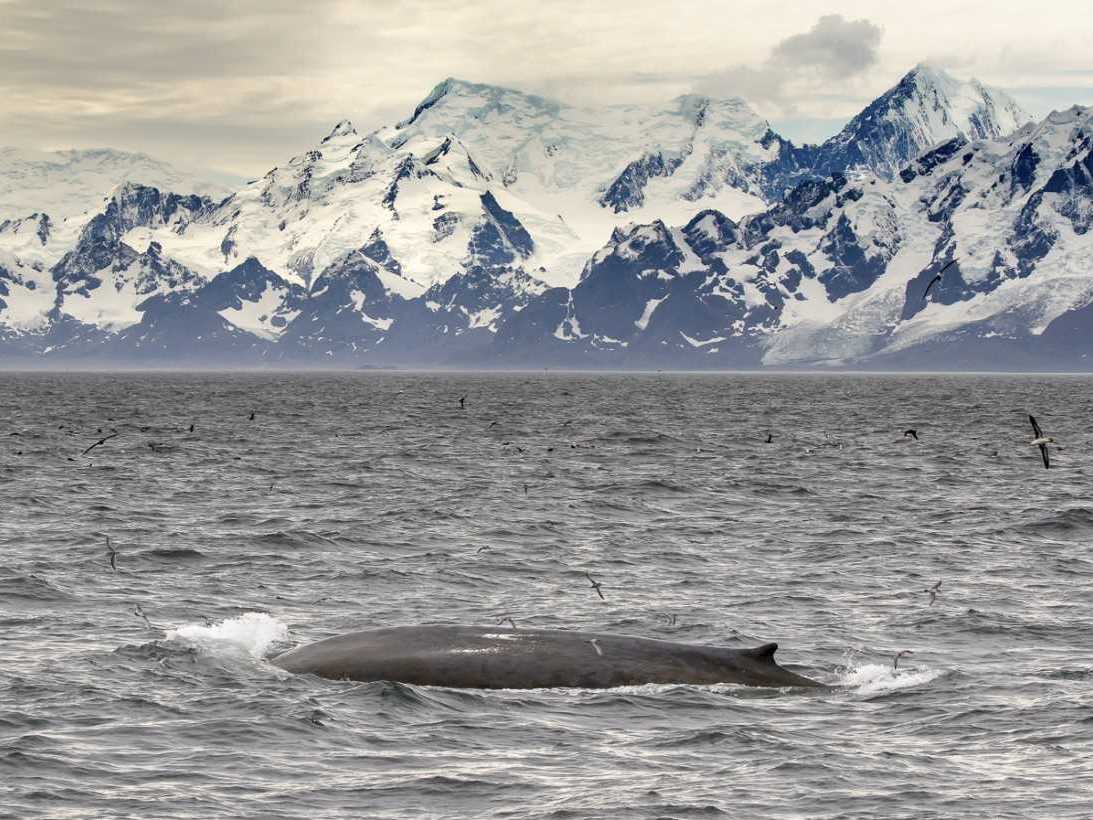Scientists believe that blue whales are making a comeback after finding a group of them in an area previously devastated by hunting.

A 23-day survey led by the British Antarctic Survey (BAS) discovered 55 blue whales around the U.K. sub-Antarctic island of South Georgia, a number not previously seen in the decades since commercial whaling ended.
In just a year, the number of blue whale sightings has skyrocketed, University of Washington cetacean specialist Trevor Branch told the BBC.
“To think that in a period of 40 or 50 years, I only had records for two sightings of blue whales around South Georgia,” he said. “Since 2007, there have been maybe a couple more isolated sightings. So to go from basically nothing to 55 in one year is astonishing.”
In the 20th century, BBC reports, South Georgia was the epicentre for whaling. Blue whale populations were reduced to only a few hundred.

Get breaking National news
“It’s such good news to see that they might be further rebounding and coming back to places where they were formerly extremely abundant,” Branch said.
The study suggests that when the 2021 audit is carried out, the species could be determined to be in full recovery mode, The Guardian reports, following the upward trend of humpbacks and other whale species.
The team of experts aboard the research vessel Braveheart collected skin and breath samples to understand the health of the animals they encountered during the trip, according to the BBC.
A hunting ban was introduced in 1966, and at that time it was rare to spot even one blue whale in Antarctic Ocean water. The last estimate for the population was 2,280 individuals in 1997, the BBC adds.
“This is definitely a pattern,” Brand said. “All of the Southern Hemisphere whale species, the populations for which we have data, are increasing.”
Some suggest the increase in whales in the area is related to a “short-term bounty of krill,” the BBC says, but survey project leader Jennifer Jackson has doubts.
“The preliminary data does not suggest it has been a particularly unusual krill year. Not this year, nor last year. It seems quite normal,” she told the broadcaster.
“So, I think this is positive. We know that 100 years ago, South Georgia was a good place for blue whales and now, after decades of protection, it seems the territory’s waters are a good place for them once again.”
—








Comments
Want to discuss? Please read our Commenting Policy first.